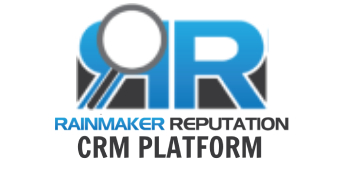Effective Techniques to Boost Your Credit Score and Improve Financial Health
If you find it difficult to secure credit, the issue may stem from your <a href="https://limitsofstrategy.com/online-loans-no-credit-check-instant-approval/">credit history</a>. Fortunately, there are a variety of proven strategies that you can implement to strengthen your credit profile and improve your overall financial health. Many people mistakenly believe that enhancing their credit score is an insurmountable task. However, with the right strategies and clear, actionable steps, you can make significant progress towards achieving a healthier credit standing. Below, we detail several effective credit tips that will guide you through the process seamlessly, ensuring you feel empowered every step of the way.
Boost Your Credit Score by Registering to Vote
It may be surprising, but your voting status can significantly influence your credit score. Registering on the electoral roll acts as a straightforward yet powerful method to enhance your creditworthiness. Lenders consider your registration as a confirmation of your identity and current address—two critical elements in their assessment process. To register, visit the government website for a quick and free registration process. If you move, it’s essential to update your registration information promptly to prevent any inconsistencies that could negatively impact your credit score.
How Joint Accounts Can Affect Your Credit Score: Key Insights
When entering a joint credit agreement with someone else, be mindful that their credit history can have a direct impact on your credit score, even after the account has been closed. Lenders evaluate the credit patterns of all parties involved in joint accounts, which can complicate your financial standing if your partner has a poor credit history. To protect your score, it’s crucial to request a ‘notice of disassociation’ from the major credit reporting agencies in the UK—Equifax, Experian, and TransUnion. This action will effectively separate your credit profile from that of the individual with whom you shared the joint account, helping to safeguard your credit score.
Ensure Your Credit Accounts Reflect Your Current Address for Accuracy
Relocating can often lead to the oversight of updating your credit accounts with your new address, yet this task is vital for maintaining a healthy credit profile. Failing to update your information can result in inconsistencies within your credit report, which may raise concerns for potential lenders. They will scrutinize your credit history for any discrepancies, and a mismatch in addresses could imply identity fraud or clerical errors. When you move, prioritize informing your credit providers and check with the three major UK credit agencies to ensure that no outdated addresses are linked to your credit profile.
Decoding Credit Searches: Understanding Hard and Soft Inquiries
Whenever you apply for credit, lenders will conduct a credit search on your file, which can be classified as either a hard search or a soft search. A hard search is visible to other lenders and may negatively affect your credit score if too many occur within a short period. Conversely, a soft search does not impact your score and is primarily used for initial eligibility assessments. While you can request lenders to conduct a soft search, they ultimately have the discretion to decide the type of search performed. Understanding these distinctions empowers you to manage your credit applications more effectively, minimizing any potential negative impacts on your credit score.
The Consequences of Payday Loans on Your Credit Report
Payday loans often carry a negative stigma among traditional lenders, who may interpret them as indicators of financial instability. If a payday loan appears on your credit report, it could hinder your ability to obtain new credit. It is essential to scrutinize your records carefully; if you find that you were mis-sold a payday loan, you have the right to contest this and request its removal from your history. If you are juggling multiple debts, it may be beneficial to consider a debt consolidation loan for bad credit to streamline your payments and improve your overall financial situation.
Assessing the Impact of Unused Credit Lines on Your Creditworthiness
Holding multiple unused lines of credit, such as credit cards or store cards, can negatively impact your credit score. Lenders may perceive this as a potential risk, suggesting that you could quickly accumulate debt if you chose to utilize those accounts. To mitigate this risk, consider closing accounts that you no longer use while keeping those with a history of positive repayments active. A good rule of thumb is to maintain your credit utilization between 20% to 30% of your total available credit, which presents you as a responsible borrower and can positively influence your credit score.
Effectively Managing Your Credit Limits to Avoid Maxed-Out Accounts
Approaching or exceeding your credit limit can adversely affect your credit score. Lenders may interpret this behavior as a sign of financial distress, which could make them hesitant to extend additional credit to you. If you plan to apply for a new credit card, loan, or mortgage, it’s advisable to focus on reducing your current debt first. By lowering your outstanding balances, you can improve your credit utilization ratio, positively impacting how potential lenders view your creditworthiness and making you a more attractive candidate for future credit opportunities.
Proactively Monitoring Your Credit File: Spotting Errors Early
Errors in credit files can occur due to administrative mistakes or misinformation from third parties. Even minor inaccuracies can significantly hinder your ability to secure credit. Therefore, it’s prudent to regularly review your credit report to identify any discrepancies. If you notice an error, you can request that the lender rectify it. If they refuse, you have the option to file a notice of correction or seek assistance from the Financial Ombudsman for further support in resolving the issue.
Be Proactive Against Fraud: Protect Your Credit History
Regularly monitoring your credit report can also help you detect potential fraud. Take the time to review your accounts and loans, ensuring they align with your personal history. If you come across unfamiliar accounts or suspicious activities, this may indicate fraudulent behavior. In such instances, it’s crucial to contact the lender immediately to address the issue and safeguard your financial integrity, as prompt action can help prevent further complications and potential losses.
Commit to Regularly Reviewing Your Credit File for Long-Term Financial Health
Your credit history is a crucial determinant of your financial identity. Credit scores can fluctuate over time, making it beneficial to periodically review your credit file to ensure all information is accurate and current. This practice is especially important before applying for new credit, as it allows you to identify and rectify any issues that could negatively affect your application. The three primary credit agencies in the UK provide easy access to your credit score, each employing different methodologies for calculation. Therefore, concentrate on your credit file rather than solely comparing scores among agencies to get a holistic view of your credit health.
Accessing your credit score is simple with the UK’s three major credit agencies, enabling you to understand how you measure up against their unique credit rating systems. Each agency utilizes a different formula for calculating your score, making it more effective to examine your credit file comprehensively instead of merely comparing numerical scores across different agencies.
Discover Valuable Resources: Articles Designed for Your Financial Journey
 Business Debt Consolidation Solutions for UK Firms
Business Debt Consolidation Solutions for UK Firms
Comprehensive Solutions for Business Debt Consolidation in the UK
 Debt Consolidation Loans UK: Benefits and Drawbacks
Debt Consolidation Loans UK: Benefits and Drawbacks
Understanding the Pros and Cons of Debt Consolidation Loans in the UK
 Debt Among Young Adults: Navigating Financial Challenges
Debt Among Young Adults: Navigating Financial Challenges
Navigating Financial Challenges Faced by Young Adults in Debt
 Spotting Debt Consolidation Scams: A Quick Guide
Spotting Debt Consolidation Scams: A Quick Guide
Essential Guide to Identifying and Avoiding Debt Consolidation Scams
Categories:
Tags:



One response
I really appreciate the insights you’ve shared on boosting credit scores; it’s a topic many people often overlook or find intimidating. I remember my own experience when I first started paying attention to my credit score. It felt almost like deciphering a foreign language! One surprising tactic for me was indeed the impact of registering to vote. I never realized that such a straightforward civic duty could lend credibility to my credit profile.